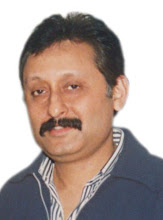In
his Farewell to Cricket, Bradman paid
compliments to Amarnath: “I look back on the season with him as my opposite
number as one of my most pleasant years. Lala, as he was called, certainly believed
in speaking his mind at all times and was not averse to expressing his opinion
in regard to a controlling authority or an individual but in Australia he
always did with the utmost courtesy and tact. Amarnath was such a splendid
ambassador and throughout the tour, I found him and (Pankaj) Gupta (manager)
absolutely charming in every respect. They co-operated in all conceivable ways
to try and make the games enjoyable and the most wonderful spirit of
camaraderie existed between the Australian and Indian players.”
Amarnath,
on his part, was unstinted in his praise for Bradman. He wrote in The Sportstar: “I am yet to see another
Bradman. Probably none would in the times to come. When people make comparisons
between Bradman and others, I laugh. Such was Bradman’s mastery that even Test
cricket was One-day cricket for him. Has anyone made 300 in a day in a Test? So
please don’t insult The Don by making silly comparisons. I know he never came
to India
Regarding
the characteristics of Bradman’s batting, Amarnath observed: “Bradman’s
eyesight was remarkable. He would spot the ball so easily, when batting or
fielding. Bradman was essentially a back-foot player. And an absolute delight
to watch. Among the shots he played, the pull obviously was the most
outstanding. He could pull any ball from anywhere, even those going away on the
off-stump. His square-cut came from the middle of the bat and the speed with
which the ball travelled to the boundary was amazing. I remember in the first
Test at Brisbane
Hazare
referred to Bradman’s tendency to often run, or jog, back to the pavilion after
being dismissed. In an article in The
Week, Hazare stated: “Whenever he got out, he always used to run to the
pavilion! He never questioned the umpire’s decision. Most of the time he
started running to the pavilion even before the umpire’s finger went up. We
didn’t find him getting angry on the field. He was a cool person. He didn’t
want to waste energy on anger.” Bradman’s exit was quite in contrast to his
entry towards the crease. Then he would walk in slowly, collecting his
thoughts, taking in the atmosphere, getting used to the light. When his job was
done he would depart hurriedly, getting away from the heat of battle to relax
and rejuvenate in the dressing room.
Sarwate
spoke more about the personal qualities of Bradman. He said in The Sportstar: “He was a great
tactician, a great captain. But he was also a great sportsman, a perfect
gentleman and a true ambassador for cricket. I have not seen many opponents
appreciating a good stroke or a good ball. The Don always had nice words if you
played a good shot or bowled a good ball to him. Signs of a good sportsman who
appreciates a good act and it did not really matter to him if the player was on
his side or the other.” Sarwate also recalled in The Week, “Don was very confident but not arrogant and that was the
way he behaved with us. He never tried to show that they were playing against a
very inferior side.” All this may sound bizarre and outlandish in the modern
age of sledging. True, this is a very different era, of cut-throat
commercialism, but abuse on the field is certainly a bane of present-day
cricket. If players find it difficult to be gentlemanly nowadays, they should
at least refrain from being loutish, particularly in this electronic age when
impressionable minds watching on live television are quick to imbibe crass
behaviour as being an acceptable way of life.
Equally
effusive in his appreciation of The Don, C.S. Nayudu also told The Sportstar: “As a cricketer he had no
match and he was simply a lovable character as a down-to-earth human being. I
know people said he was aloof at times, but we all found him such an easily
approachable man.” The verdict was unanimous. Bradman and the Indians got along
very well.
Author
Indra Vikram Singh can be contacted on email singh_iv@hotmail.com.
Follow
him on:
Facebook:
https://www.facebook.com/ivsingh
and
Twitter:
https://twitter.com/IVRajpipla
Other
books by Indra Vikram Singh available on Amazon:
A
Maharaja’s Turf https://www.amazon.in/dp/8190166832
The
Big Book of World Cup Cricket https://www.amazon.in/dp/8190166840
Crowning
Glory https://www.amazon.in/dp/8190166867



No comments:
Post a Comment